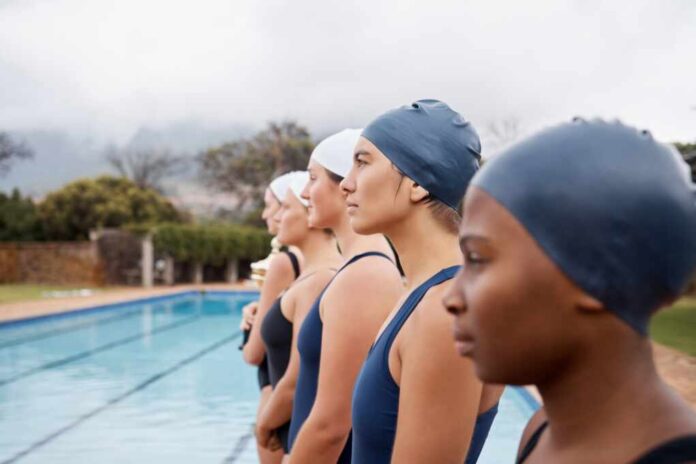
Ken Paxton is at it again, taking a stand against the radical agenda by suing U.S. Masters Swimming for its controversial transgender policy.
At a Glance
- Texas Attorney General Ken Paxton files a lawsuit against U.S. Masters Swimming.
- Transgender athletes competed and won medals at the USMS event in San Antonio.
- The lawsuit claims violations of the Texas Deceptive Trade Practices Act.
- This legal battle highlights the tension between state laws and inclusivity policies.
Texas Takes a Stand
In April 2025, the USMS Spring Nationals took place in San Antonio, Texas, where two transgender women competed in women’s events, sparking outrage among female competitors. The event became a flashpoint when one of the transgender athletes, Ana Caldas, won five gold medals in the women’s 45-49 age group. Many female competitors were left stunned, unaware they would be competing against biological males. This controversy didn’t sit well with Texas Attorney General Ken Paxton, who quickly announced an investigation into U.S. Masters Swimming (USMS) in May 2025.
Texas Attorney General sues US Masters Swimming after trans athlete controversy in San Antonio https://t.co/OVJpTOPp49 pic.twitter.com/eh6C4QDwHI
— New York Post (@nypost) July 18, 2025
Paxton’s legal action is grounded in the Save Women’s Sports Act, passed in Texas in 2023, which bans transgender women and girls from participating in women’s sports at the K-12 and collegiate levels. While this law doesn’t explicitly cover adult amateur sports, Paxton is pursuing action under the state’s Deceptive Trade Practices Act. He argues that USMS has engaged in “false, deceptive, and misleading practices” by allowing transgender women to compete in women’s events. The lawsuit seeks up to $10,000 per violation, putting USMS in a precarious legal position.
Watch a report: Texas Attorney General’s Office investigating U.S. Masters Swimming
The Battle Over Fairness
The lawsuit has brought to light the ongoing national debates over transgender rights in sports, with Texas leading the charge in enacting restrictive laws. USMS’s policy allowing transgender women to compete in women’s events is at odds with Texas’s legislative direction. Paxton’s lawsuit represents a novel use of consumer protection law to challenge a sports organization’s eligibility policy, a move that could set a precedent for similar legal battles across the country.
In his statement, Paxton didn’t mince words: “The organization has cowered to radical activists pushing gender warfare, and it has deprived female participants of the opportunity to succeed at the highest levels by letting men win countless events.” The lawsuit aims to hold USMS accountable to the women it has allegedly harmed and the consumers it has deceived. As this legal battle unfolds, the outcome could have far-reaching implications for other adult amateur sports organizations, especially in states with similar laws.
Implications and Industry Impact
In the short term, USMS faces significant legal and reputational risks in Texas. If found liable, the organization could face substantial financial penalties. Transgender athletes’ participation in Texas events may be curtailed or subject to new restrictions, causing uncertainty for both athletes and event organizers. Cisgender female competitors may experience increased scrutiny and uncertainty regarding eligibility rules.
Looking further ahead, this case could influence national sports policy discussions and legal strategies in other states. The outcome may prompt federal-level advocacy or litigation regarding transgender participation in sports. Event organizers might reconsider hosting competitions in Texas due to the legal risks, and the broader political debate over transgender rights and women’s sports may intensify.

























